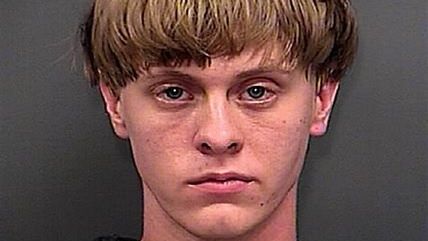Lindsey Graham: 'Being Able to Track People, Put Them Into Systems' One Way to Prevent Mass Shootings
But, says Graham, people have freedoms


The mass shooting at an AME church in Charleston, S.C., Wednesday night perpetrated by a white man who confessed he was trying to start a race war has led to the predictable emotional appeals to old party lines, from gun control to more salvation and less government, especially in a 24 hour news cycle.
South Carolina Sen. Lindsey Graham (R), who's running for president, says his niece attended school with Dylann Roof, and that he seemed like an "Adam Lanza" type. While Graham didn't refer to other seemingly obvious motivations, like trying to start a race war, he did offer a solution that matches the response to radical Islamist terrorism more closely policy-wise, if not rhetorically.
Graham's comments, via CBS News:
"I bet there were some indicators early on that this guy was not quite there. Just being able to track people - put them into systems where they can be deterred or stopped. But it's very complicated in a nation of 300 million people where you have freedom of movement and freedom of thought. 300 million of us and unfortunately every now and then, something like this happens. And we'll see."
The perceived treatment of white suspects as mentally ill "lone wolves" by the media where non-white suspects are treated as terrorists and thugs is a common complaint in the wake of mass shootings by white men. Lindsey Graham goes both ways here, using the lone wolf rhetoric, offering a counter-terrorism solution—tracking people in systems, and then almost dismissing it as the price of free society. Were Dylann Roof interested in joining ISIS, Lindsey Graham would be ready to blow him up just for thinking the thought.
For a government looking to get people to trade more liberty for the promise of more security and looking to expand its domestic policing and surveillance apparatuses, it's easy to acquiesce to demands Roof and the threat of white supremacist terrorism be treated more like the threat of radical Islamist terrorism. And such demands make it harder to realize that the threat posed by free people, white or non-white, Christian, Muslim, whatever, is exaggerated and exploited toward the end of more surveillance, more policing, at home and abroad, and more control.


Show Comments (117)